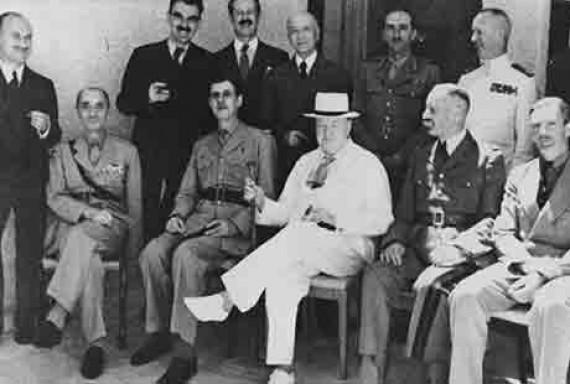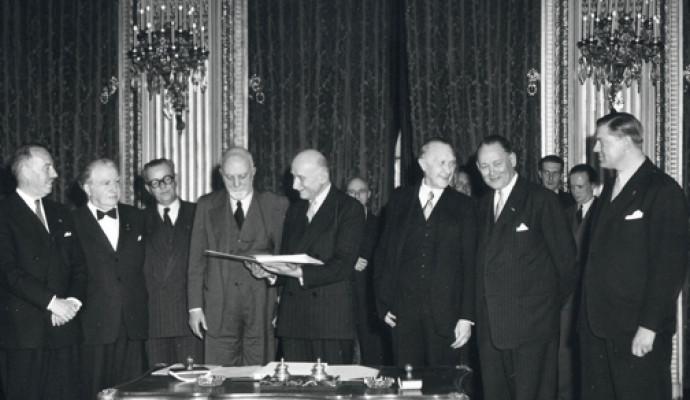
In the spring of 1950, Jean Monnet invited the French Foreign Minister Robert Schuman to his house in Houjarray. A few weeks later, in line with Monnet’s proposal, Schuman announced to the world the creation of the European Coal and Steel Community (ECSC).
Though limited to specific fields, this very practical proposal laid the foundations for the broader undertaking of reconciling and bringing prosperity to former battlefield enemies.
‘A united Europe was not achieved and we had war’, Schuman declared on 9 May 1950 in the Salon de l’Horloge at the Quai d’Orsay in Paris.
After so many decades of wars that had brought untold bloodshed to Europe and torn apart its people, here was a project to rebuild the Old Continent with European solidarity as its cornerstone.
From 16 April to 6 May 1950, Jean Monnet and his colleagues gathered at his house in Bazoches, far from the hubbub of Paris, to draft what would become the ‘Schuman Declaration’.
Europe, as we know it today, was born.
Jean Monnet, one of the architects of today’s Europe

Jean Monnet, Robert Schuman, Konrad Adenauer, Alcide De Gasperi, Paul-Henri Spaak, Johan Willem Beyen and Joseph Bech: their vision and actions set in motion the process that would lead to the Europe of today.
Monnet, in particular, was the main inspiration behind the ‘Monnet-Schuman method’, also known as the ‘small-steps method’. Initially focused on joint management of the mining and steel sectors, the intention was always to extend it to new strategic economic and political areas.
The aim of the gradual integration which resulted from these first tangible actions was to achieve European political unity.
For his part in this ambitious project, Jean Monnet would become recognised as one of the ‘Founding Fathers of Europe’. Today, many streets, squares and schools and various European and international scholarship programmes bear the name of Jean Monnet.
The first person to receive the distinction of ‘Honorary Citizen of Europe’, his impact on 20th century history is often poorly understood by the general public. Time Magazine identified Monnet as one of the 20th century’s 100 most influential figures whose actions have had most impact on the fate of the world.

